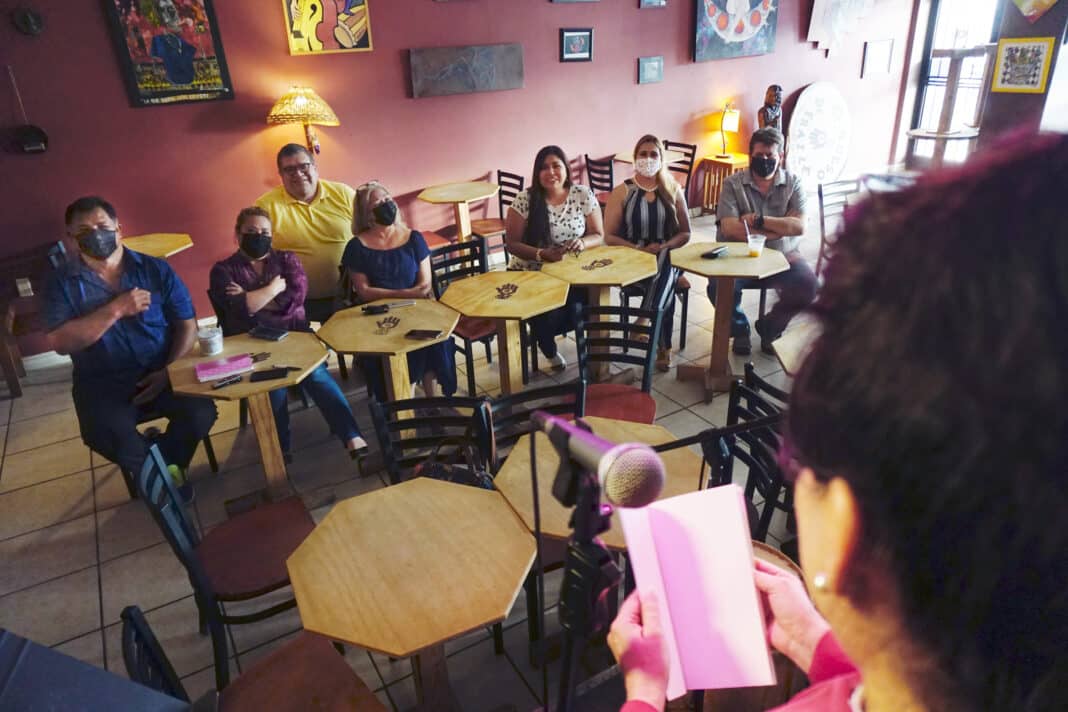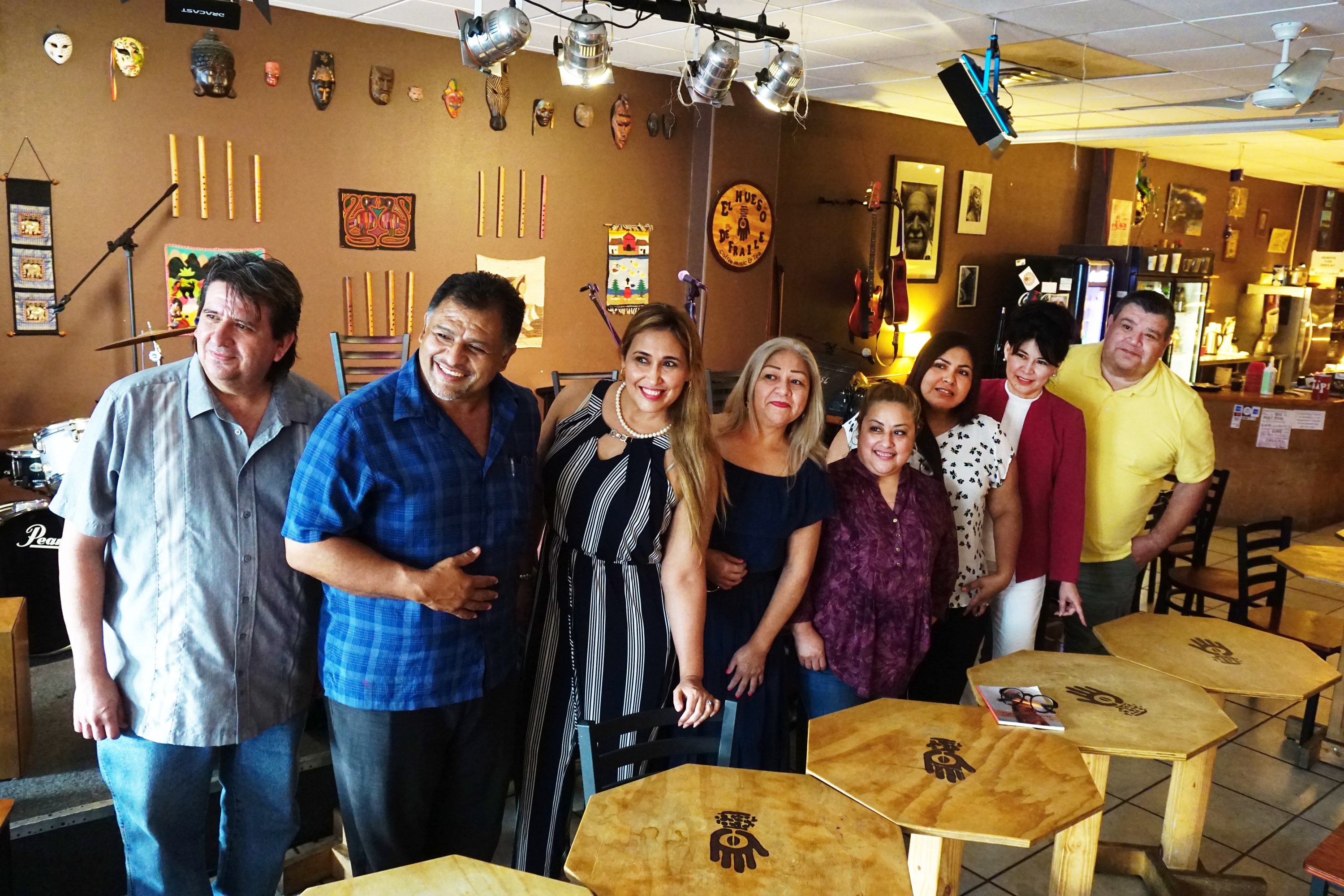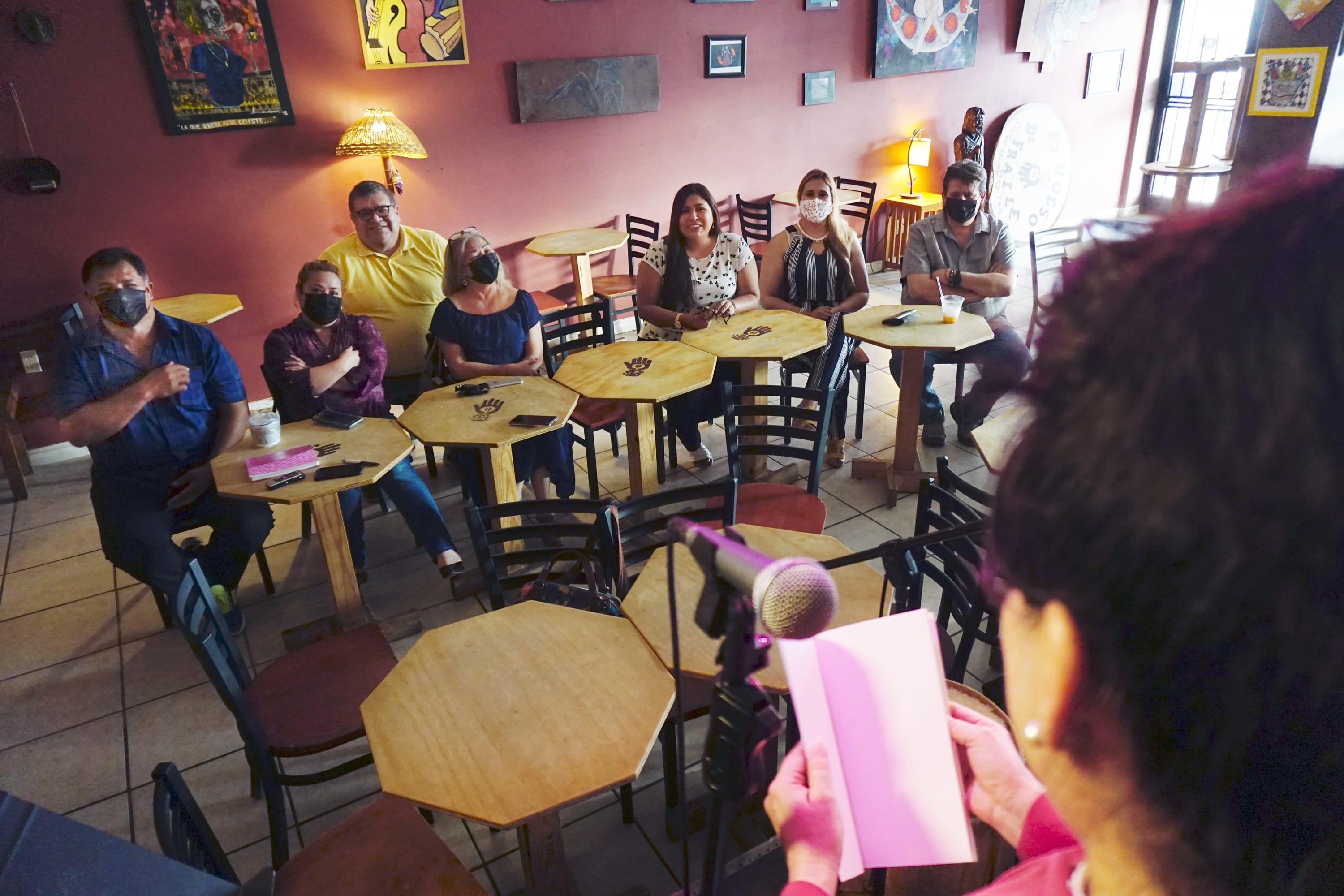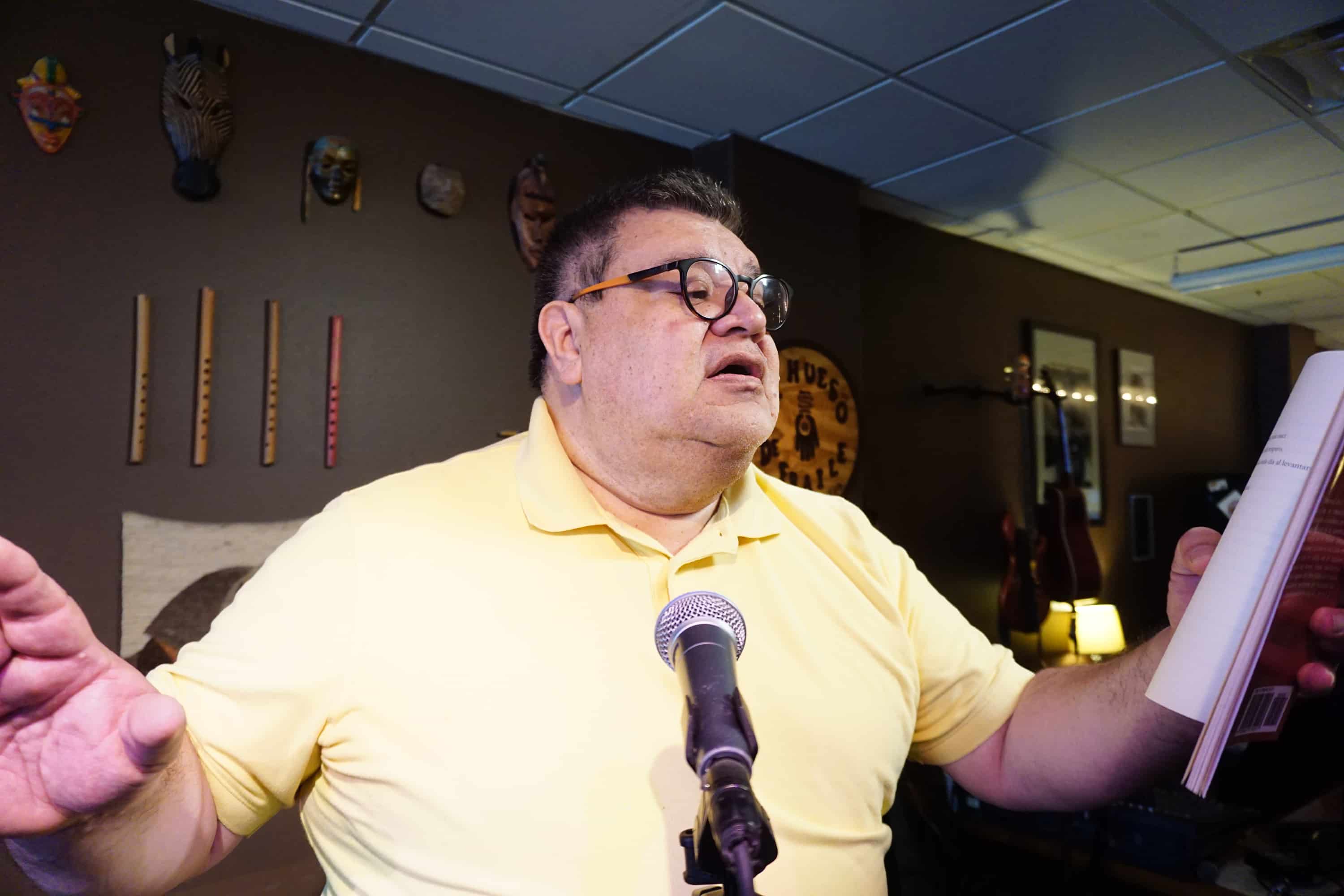For the past five years, writers from all over the Rio Grande Valley have been reuniting the first Friday of every month at El Hueso de Fraile as part of “Poesía en atril,” a group of writers and poets who get together to share their poetry and talk about the experiences they have as immigrants in the United States.
Eduardo Villarreal, who founded the group, is native from Matamoros but has been living in Brownsville for more than 20 years. He said he defines himself and members of the group as “Mexicans in voluntary exile” because they left their hometown voluntarily in search of a better opportunity in life. He said the Rio Grande Valley area feels like a different country between Mexico and the United States.
“I feel like from here, all the way to the checkpoint, it feels as if we are a middle country between Mexico and the United States with its own limitations, own cultures and a different rhythm. So, I was feeling as if something was missing, I felt that we needed a group where we could understand each other, where we could talk as Mexicans who are immigrants; we are Mexicans in a voluntary exile,” Villarreal said.
Villarreal said he didn’t think the group would continue for as long as it has, but that he hopes it continues for the future generations because poetry saves lives and is an art that goes together with dancing and painting. “Poesía en atril” has welcomed more than 70 writers throughout the years to read their poems from all over the Rio Grande Valley and other places such as San Marcos and San Antonio.
“So five years ago we started this movement that we named ‘Poesía en atril’ and it means the assurance that you can change, that you can change yourself, that you can change the world and that you can save lives and most importantly save yourself. Through poetry, you can save yourself,” he said.
“I know it sounds tragic, utopic, but all movements started as a utopia, all movements started like that, it all starts with a dream, but you have to believe it.”
Villarreal said it was important for him to include music in the reunions because there’s poetry in it. He said he does not know what the future holds for poetry, for the meetings, and the ways in which people will express themselves, but that the need for poetry will continue. He added the art movement in Brownsville is strong and always welcoming of new people.
“I don’t know what the future holds but the need of reading and creating poetry will always exist. I think that painting, dancing and poetry go together, it is what saves us and you cannot take that way from us. It is the dream that saves us, that helps us,” he said.
“People ask me, why poetry? What is poetry for? And among other things I say that poetry is for making friends and in the end, the art world is small, so we are all going to know each other one day. The art movement exists here in Brownsville, if not, we wouldn’t have this coffee shop, we wouldn’t have El Hueso de Fraile. Those who may think it doesn’t exist are those who haven’t been here. And what I always say is, ‘feel proud of your roots’ and speak Spanish. And we have to be proud of that.”
Gloria Rodriguez, who is one of the longest members of the poetry group, is an immigrant from Tula, Mexico, and has published two books in the past five years. She recently opened her own publishing house and said she has been writing and interested in poetry for as long as she can remember, but started to take it seriously when she did her master’s in literature at the UTRGV legacy institution, UT-Brownsville.
“I don’t write so people read me,” she said. “I write for myself, I write because poetry exorcises us. It helps us look for that place we didn’t know we have. So, I think poetry liberates us from all of our monsters.”








